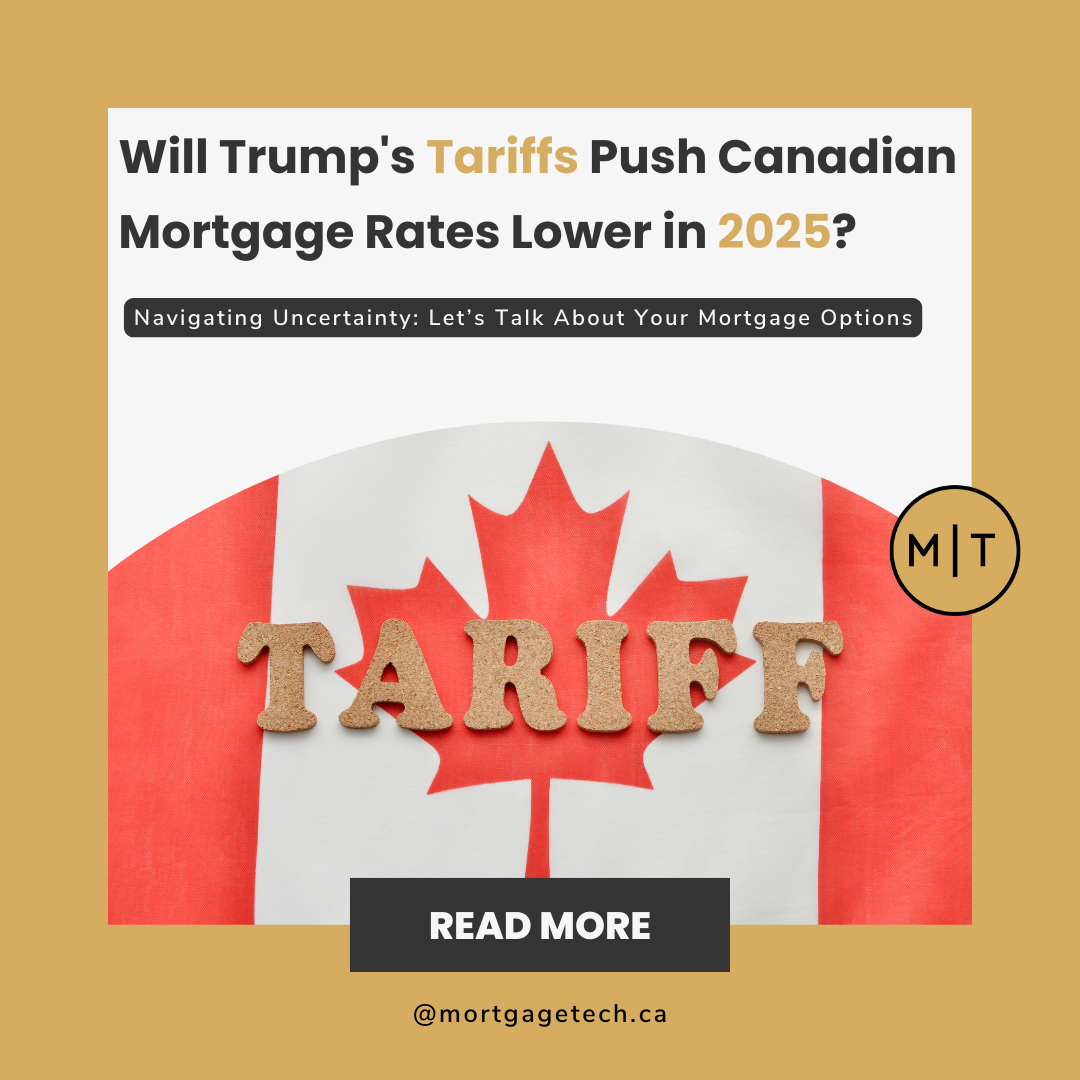How U.S. Trade Policies Are Shaping Canada’s Housing Market
With new U.S. tariffs on Canadian goods already in effect—and Canada retaliating with its own tariffs—many Canadians are wondering how this escalating trade tension will impact the economy, mortgage rates, and home prices.
The Bank of Canada (BoC) has signalled that interest rate cuts are likely in 2025, but the extent and timing of these cuts will depend on how tariffs impact inflation, economic growth, and consumer confidence. If you’re planning to buy a home, renew your mortgage, or refinance, it’s crucial to understand how these developments might shape borrowing costs in the months ahead.

What Is Affected by U.S.-Canada Tariffs?
The new tariffs introduced by the U.S. under Trump’s policies target key Canadian industries, affecting everything from manufacturing to retail prices. Canada has responded with its own counter-tariffs on American goods, further increasing costs for consumers and businesses.
According to The Conversation, key sectors impacted include:
- Steel and aluminum – Tariffs drive up costs for homebuilders and developers, potentially making new housing more expensive.
- Automotive industry – Car prices could rise due to higher manufacturing costs, affecting household budgets.
- Agriculture and food products – Increased tariffs on U.S. food imports could raise grocery prices, contributing to inflation.
- Retail and consumer goods – Everything from electronics to household items could see price hikes as trade costs increase.
As Sudbury.com explains, “Higher costs in key industries could slow economic growth, making rate cuts more necessary—but inflation remains a concern.”
Will These Tariffs Push Mortgage Rates Down?
The Bank of Canada’s interest rate decisions are influenced by multiple factors, including trade relations, inflation, and overall economic health. Here’s how the current situation may affect mortgage rates in 2025:
- Tariffs Could Slow Economic Growth – U.S. tariffs on Canadian goods make exports more expensive, which could hurt businesses and weaken Canada’s economy. A slower economy typically leads the BoC to cut rates to encourage borrowing and spending.
- Inflation Remains a Key Concern – Tariffs often drive up consumer prices. If inflation rises too much, the BoC may take a cautious approach to rate cuts, balancing the need for lower rates with the risk of further inflation.
- Global Uncertainty Adds Volatility – Beyond U.S. tariffs, geopolitical events, supply chain disruptions, and financial market fluctuations all play a role in Canada’s economic outlook. If conditions worsen, the BoC may lower rates more aggressively to keep the economy stable.
According to MPA Magazine, “While rate cuts seem likely, ongoing inflationary pressures from higher costs could slow the Bank of Canada’s ability to act as aggressively as some homebuyers hope.”
What Does This Mean for Homebuyers and Homeowners?

Rates are expected to decline, but economic uncertainty makes timing difficult. For homebuyers, mortgage renewals, or those looking to refinance, taking a strategic approach is key.
Should You Lock in a Mortgage Rate Now or Wait?
A common question right now is whether to lock in a mortgage rate today or wait for potential cuts in 2025. The good news? Most lenders allow you to lower your rate if rates drop before closing.
Here’s why locking in now can be a smart decision:
- Locking in protects against unexpected rate hikes – While rates are projected to fall, unexpected economic shifts (such as rising inflation) could limit how much they drop. A locked-in rate secures your borrowing costs now.
- Many lenders allow a rate drop before closing – If rates go lower before you finalize your mortgage, many lenders will adjust your rate downward—giving you peace of mind.
- Waiting carries risks – While rates are expected to drop, there’s no guarantee they’ll fall as much as anticipated. Locking in a competitive rate today ensures stability, with the option to adjust later if necessary.
Fixed vs. Variable: Which Mortgage is Best in 2025?
If you’re considering whether to choose a fixed-rate or variable-rate mortgage, here’s what you should know:
If you’re unsure which option suits your financial goals, a hybrid strategy may be worth considering—such as locking in part of your mortgage at a fixed rate while keeping the rest variable.
Will the Canadian Economy Crash? What This Means for Real Estate
While Canada’s economy is under pressure, most experts do not expect a major crash. Instead, we are likely to see:
- Slower economic growth due to tariffs, inflation, and trade disruptions.
- Lower interest rates as the BoC works to support economic stability.
- A balanced or slightly cooling housing market, with price adjustments in some areas.
For those in the market for a home, this could create new opportunities, especially if rates decline and affordability improves.
Navigating Uncertainty: Let’s Talk About Your Mortgage Options
Economic uncertainty can make mortgage decisions challenging, but with the right strategy, you can secure a mortgage that works for your financial goals—no matter what happens with rates.
